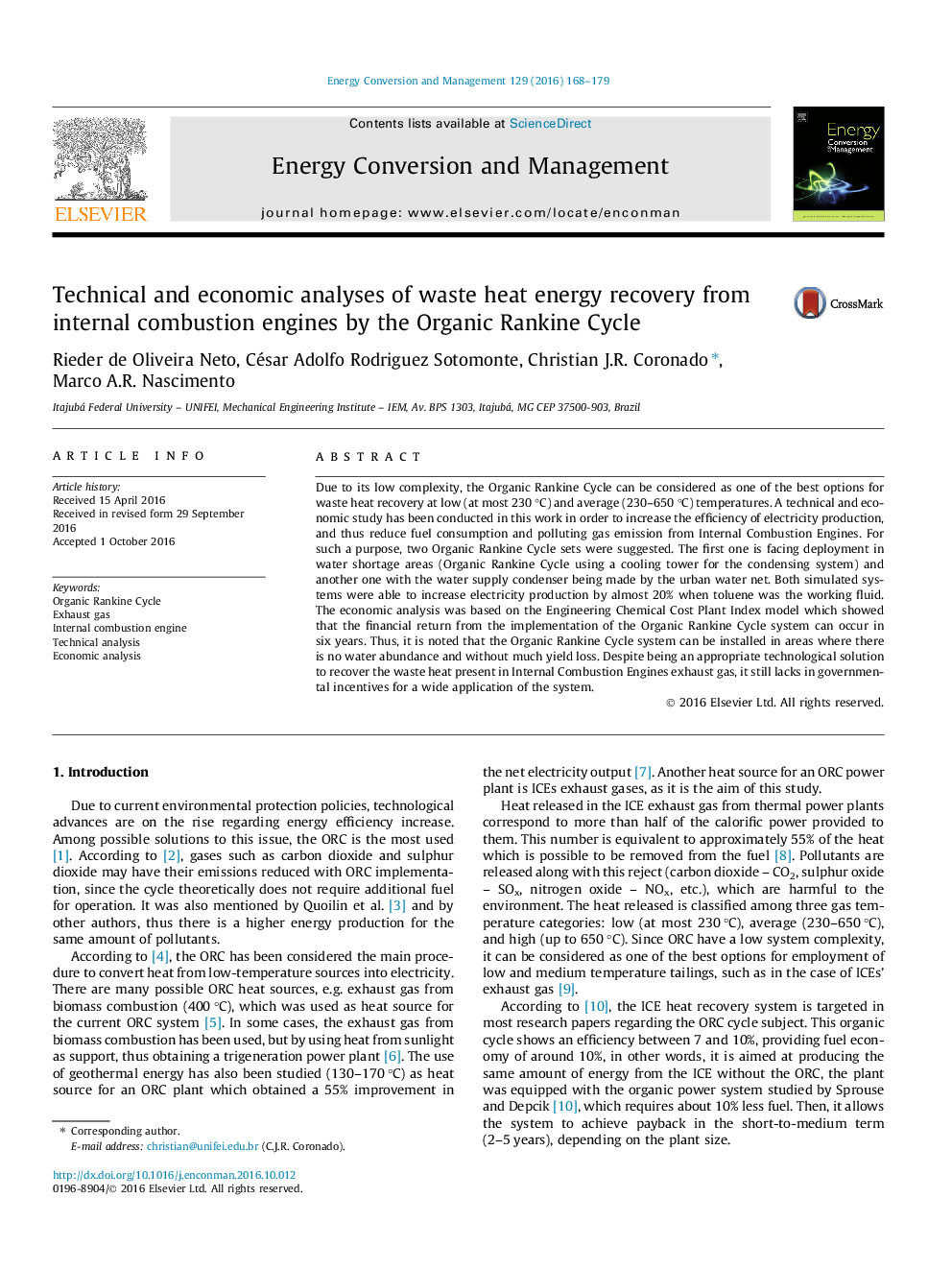| Article ID | Journal | Published Year | Pages | File Type |
|---|---|---|---|---|
| 5013304 | Energy Conversion and Management | 2016 | 12 Pages |
Abstract
Due to its low complexity, the Organic Rankine Cycle can be considered as one of the best options for waste heat recovery at low (at most 230 °C) and average (230-650 °C) temperatures. A technical and economic study has been conducted in this work in order to increase the efficiency of electricity production, and thus reduce fuel consumption and polluting gas emission from Internal Combustion Engines. For such a purpose, two Organic Rankine Cycle sets were suggested. The first one is facing deployment in water shortage areas (Organic Rankine Cycle using a cooling tower for the condensing system) and another one with the water supply condenser being made by the urban water net. Both simulated systems were able to increase electricity production by almost 20% when toluene was the working fluid. The economic analysis was based on the Engineering Chemical Cost Plant Index model which showed that the financial return from the implementation of the Organic Rankine Cycle system can occur in six years. Thus, it is noted that the Organic Rankine Cycle system can be installed in areas where there is no water abundance and without much yield loss. Despite being an appropriate technological solution to recover the waste heat present in Internal Combustion Engines exhaust gas, it still lacks in governmental incentives for a wide application of the system.
Keywords
Related Topics
Physical Sciences and Engineering
Energy
Energy (General)
Authors
Rieder de Oliveira Neto, César Adolfo Rodriguez Sotomonte, Christian J.R. Coronado, Marco A.R. Nascimento,
